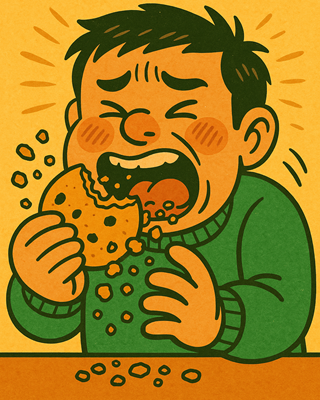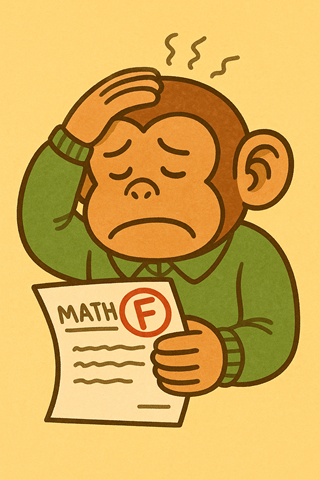When something is falling apart — whether it’s old clothes, your test scores, or even your heart — the Japanese onomatopoeia “Boro Boro” (ぼろぼろ) captures that crumbling, broken, or worn-out state perfectly.
Before we dive in, hear what it sounds like!
What is “Boro Boro” (ぼろぼろ)?
“Boro Boro” is a Japanese onomatopoeia used to describe something that’s falling apart, worn out, or emotionally devastated.
It can refer to physical things (like tattered clothes or crumbs) and also emotional or mental states (like someone crying uncontrollably or failing badly).

Pronunciation
boh-roh boh-roh
Categories
Condition / Texture / Emotion

What Does “Boro Boro” Look Like?
Some words aren’t just sounds — they fall apart even in writing.
Let your eyes follow these crumbling letters: “Boro Boro.”

How Do You Say It?
It looks fun on the page, but how does it sound?
Let’s say it together — press play and listen!
Examples in Daily Life
Example 1: Crumbling Food
The cookie was so dry it turned to boro boro crumbs the moment I bit into it.

Example 2: Worn-Out Clothes
He wore boro boro jeans full of holes and frayed edges — they’d clearly seen better days.

Example 3: Crying in Tears
She was crying boro boro, with tears falling nonstop down her cheeks.

Example 4: A Terrible Test Result
“I was boro boro on that math test,” he sighed, looking at his score.

Cultural Note
“Boro Boro” is a vivid expression used in everyday Japanese — not only for describing broken objects, but also for expressing emotional defeat or exhaustion.
It’s often used in manga and anime when a character is heartbroken, soaking wet, or completely worn out after a battle or breakdown.
Watch & Feel the Boro Boro World!
To truly grasp the essence of boro boro, check out these moments in motion:
Cookie Crumble Close-Up
Watch as a dry cookie crumbles into boro boro bits — strangely satisfying!
Try Using It!
Next time you drop crumbs everywhere, see someone in ragged clothes, or feel like your brain is melting after a hard day…
Say “Boro Boro” — it’s the perfect word for things that just can’t hold it together anymore.

Leave a Comment
This site is growing little by little — with your help.
If you’re curious about what kind of onomatopoeia fits a certain scene or feeling, feel free to make a request!
Kind thoughts, warm feedback, or any nice ideas are always welcome.
You can leave a comment in the section at the bottom of the page.
Looking forward to hearing from you.
















Comments